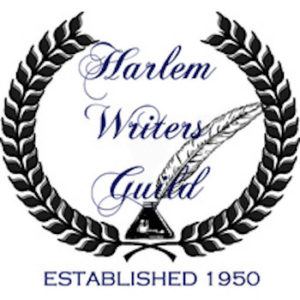
*The Harlem Writers Guild (HWG) is celebrated on this date in 1950. HWG is the oldest organization of Black writers in America.
It was initially established as the Harlem Writers Club by John Oliver Killens, Rosa Guy, John Henrik Clarke, Willard Moore, and Walter Christmas. During the 1920s and 1930s, many southern African Americans traveled to Northern urban cities for more significant opportunities. The Harlem Renaissance cultivated a boom of literary, music, and art expressions as a channel for writers, musicians, and artists cumulatively in Harlem, New York.
This boom was so prevalent it was regarded as the rebirth of African American arts. The prevalence in the Harlem neighborhoods began as a root within the African diaspora, somewhere many African Americans traveled to and combined feelings of culture and community. The growing prevalence of African American art forms paved the way for a new era of African American literature to enroll. The Harlem Writers Guild was a forum where Black writers could develop their craft. After funding for an organization active in the late 1940s called "The Committee for the Negro in the Arts" ended, these writers felt excluded from the mainstream literary culture of New York City.
The HWG was also part of the Black Arts Movement of the 1960s. Its rationale continues to aid in publishing works by writers of the African diaspora. Other writers associated with the HWG include Lonne Elder III, Douglas Turner Ward, Ossie Davis, Paule Marshall, Audre Lorde, Maya Angelou, and Sarah E. Wright. History: In the 1950s, Killens had invited several aspiring Black writers to meet at a shop in Harlem to hear and review one another's literature. The Harlem Writers Guild thus began expanding, with new authors writing and publishing work emphasizing topics such as racism, oppression, and welfare. During the 1960s, the group supported Malcolm X, conflicts of independent rights in Angola and Mozambique, and organized to dismantle racist policies established in South Africa.
The group used their connections to communicate about marches, Freedom Rides, and other progressive organizations. In 1977, the HWG was honored by the United Nations Society of Writers. In 1986, John O. Killens estimated that the Harlem Writers Guild members had produced over 300 published fiction, non-fiction, poetry, plays, and screenplays. Several have received literary acclaim. The Harlem Writers Guild seeks to give African American writers a platform to present their art in its entirety without censoring their experience of being Black in the United States of America. In addition to publishing works, the Harlem Writers Guild also acts as an organization to promote social change and an entity that hosts events to celebrate and encourage its members.
Harlem Writers Guild Press
In 2000, HWG announced a partnership with the digital publisher iUniverse to create its imprint, Harlem Writers Guild Press. The anthology Beloved Harlem: A Literary Tribute to Black America's Most Famous Neighborhood (Random House, 2005), edited by William H. Banks Jr.
Past and present members include Grace F. Edwards, Rachel DeAragon, Louise Meriwether, Karen Robinson, Dr. Olubansile Abbas Mimiko and Terry McMillan, Robert McNatt, Lofton Mitchell, Wilbert Oliver, Funmi Osoba, Sidney Poitier, Charles Russell, K. C. Washington, Minnette Coleman, Gammy Singer, Wilbert Tatum, Brenda Wilkinson, Valerie Wilson Wesley, Sandra L. West, Doris Jean Austin, William H. Banks Jr., Wesley Brown, Rosemary Bray, Irving Burgie, Judy C. Andrews, Godfrey Cambridge, Andrea Broadwater, Alice Childress, Ossie Davis, Ruby Dee, James DeJongh, Lonne Elder III, Donis Ford, Bill William Forde, Lorraine Hansberry, Bob Desverney, Dr. Beryl Dorsett, Sheila Doyle, Lloyd Hairston, Robert Hooks, Rose James, Alfonso Nicks, Betty Ann Jackson, and others.
To be a Writer
To Become a Librarian
To Become an Editor
To Become a Desktop Publisher